On Saturday, 17 hours of music across multiple cities, hosted by Morphine with CTM Festival and Unsound, mark a year of unimaginable tumult in Lebanon. Here’s a look at the program – and the Beirut artists participating.
Twitch is most reliable: https://www.twitch.tv/morphine_records
Donations + gifts: http://www.morphinerecords.com/marathon/
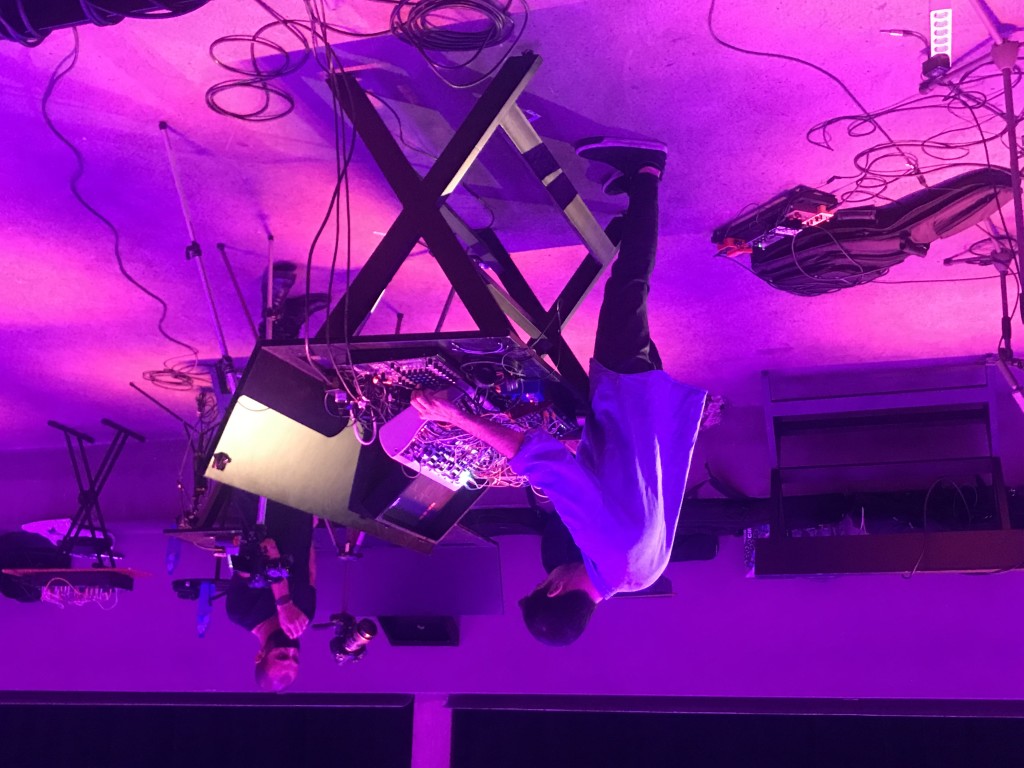
In the past weeks, we’ve seen historic times in so many places – Belarus, Kyrgyzstan, Nagorno-Karabakh with Armenia and Azerbaijan … the United States of America. The list goes on. The impacts on artists living in these places and watching from abroad are profound. Sometimes, music is a refuge; sometimes, music is on hold.
Lebanon’s crises have seemed to encapsulate so much of this moment – especially when the world watched the devastation of negligence in the deadly blast of August 4th. But the Beirut musical scene has been dramatically disrupted since long before even that terrifying explosion. Tomorrow’s music marathon marks one year since the so-called October Revolution. That can seem a kind of lifetime, and it was just the beginning. As Morphine founder Rabih Beaini writes:
In addition to sitting on one of the world’s most turbulent political fault lines, Lebanon’s capital city of Beirut has undergone, in the past year alone, a steady collapse of its economy, waves of revolutionary protests, a deadly criminal blast that devastated entire neighborhoods and, last but not least, renewed spikes in Covid-19 fatalities. This disastrous chain of events has resulted in exposing Lebanon’s deeply-corrupt sectarian ruling elite, a group of ruthless warlords who remain entirely oblivious to the country’s worsening situation, and show no intention of mending the situation or aiding the country’s devastated areas.
One of our main roles as citizens is to defy authority, once the latter displays signs of corruption. Defiance can be expressed in many ways; collective disobedience is one, and another is artistic expression.
Be ready for an extended session of more than 17 hours of music, culture, news, streaming madness, joy and tears, while the Lebanese people hopefully gather in the streets of their capital, to chant and demand the fall of the Corrupt.
The Beirut lineup here represents something important – artists who are still in the country, and many of whom have played little, if at all, in anything like a gig in the past twelve months. As I’ve written before, Lebanese identity for millions of people is something that involves life outside of Lebanon, so there is also this significant function for artists watching virtually – and my heart goes out to you, too.
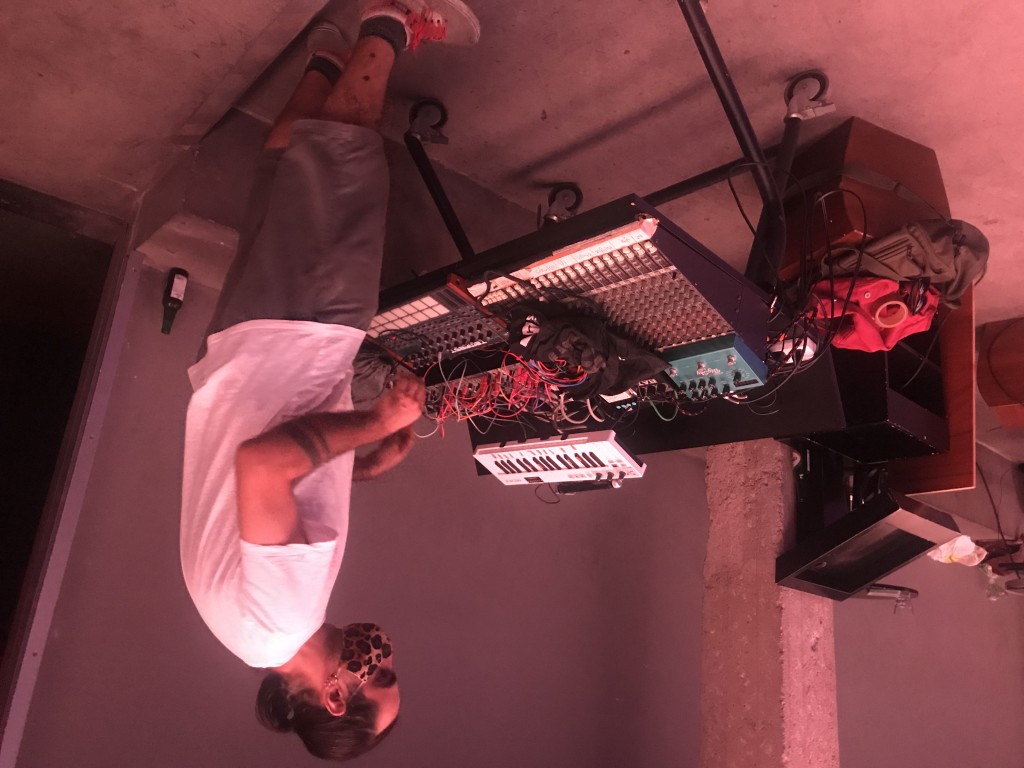
The concerts in Beirut are organized by Fadi Tabbal, who runs the famed local studio Tunefork, as Rabih from his new Kreuzberg space Morphine Studios helms the Berlin stream hub. Rabih is then supported by two festivals – CTM Festival in Berlin, and Unsound in Kraków.
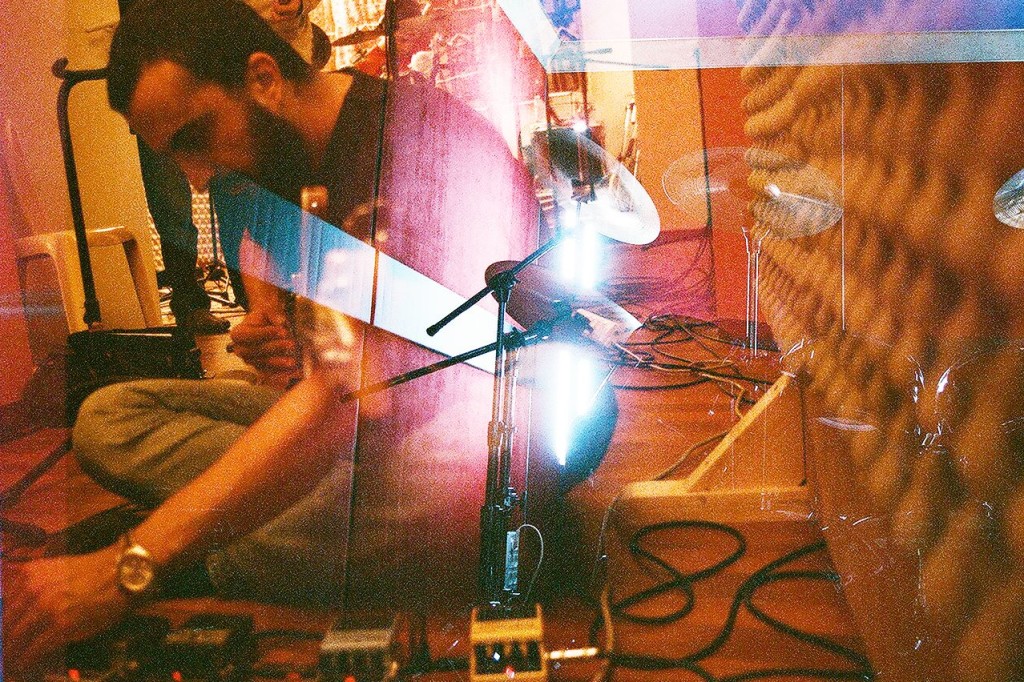
Pictured at top / above: Tony Elieh of CALAMITA, by Rachel Tabet.
How to watch
From 10am Berlin time (11am Beirut) Saturday to 3am Sunday – that’s 4am to 9pm Saturday NYC – you can tune in online.
Morphine will use their Twitch channel, which is also an easy way to interact via chat:
https://www.twitch.tv/morphine_records
And you can use the Streamback channel, as well. It’s a new platform that lets you interact directly with the video using your webcam. (Really – seems they are making this effective in this case, too. Streamback is also helping present the stream.)
https://www.streamback.de/beirut
How to help
The Lebanese Musicians’ Fund is a project of Tunefork that’s helping in recovery from the blast and chaos, including assisting musicians, producers, and sound engineers who lost instruments and gear. (Their page also includes Bandcamp music, while you’re at it.)
https://www.tuneforkstudios.com/donate
More details are expected tomorrow, and Morphine Records has its marketplace of items for support, too. Those are listed at:
http://www.morphinerecords.com/marathon/
Meet the Beirut participants
The event is international, but it’s an opportunity to get to know some of the musical voices of Beirut, so let’s focus there.
NÂR – originally Zora VIPERA and Nadia DAOU – weaves together soundscapes and north African percussion and performances and turns into some singular, ritualistic wonder that’s wild and personal and vulnerable. Nadia’s music is really touching:
But you can dive deep into that project:
One of the curators, Frequent Defect “is a collective and social movement based in Beirut that uses events as the main channel for outreach with the emphasis on the socio-political Lebanese situation exhibited by a particular art direction.” The “DIY/local empowerment” organization has been working since 2016 with gatherings, talks, and workshops on “radical art.”
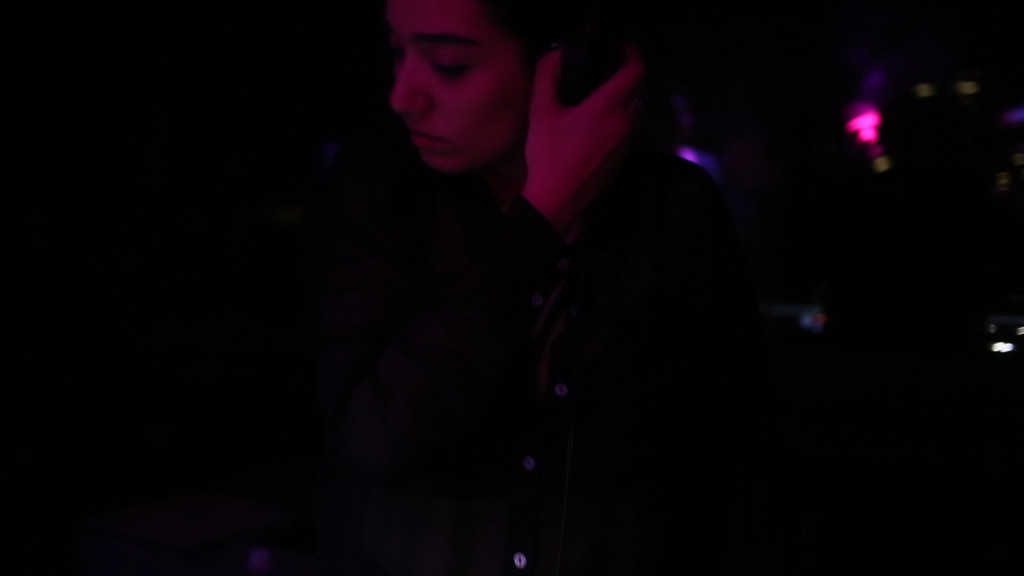
Check Renata, who was managing to play in Lebanon in July just before the explosion:
frequent defect · Renata – opening FD – Antagonistic Shift – 12-10-19
Or He Who Goes Anywhere, aka Patrik Abi Abdallah, is a percussionist and co-founder of Frequent Defect:
TRY HARDER is the post-club project of Beirut’s George Tabatadze:
Though you might also find him here:
june as, aka Joseph Junior Sfeir, established Frequent Defect and says his music is “an anthology of introspective cratering”:
Jad Atoui is a composer and experimentalist who has played with the likes of John Zorn and Bill Frisell and Laurie Anderson:
– and he’s got a duo with Chuck Bettis, which sounds like this:
Venue and co-curator The Ballroom Blitz has a similarly multi-functional mission:
The Ballroom Blitz is a music venue with a robust program of live gigs, DJ sets, and workshops that transition through three rooms.
Music is at the center, and not simply a conducive element for a party; a club that is at once dynamic, transformative and diverse. The venue’s programming insists on a thorough hunt for emerging talent both locally and globally, alongside established names from the industry, fostering a collaborative club culture in Beirut.
Music, however, is not limited to the clubbing and concert experience. In an attempt to engage in wider discussions, The Ballroom Blitz seeks to provide an outlet for musical and audiovisual production with seminars and workshops, and publishes a print and online journal that feature album reviews, interviews, and news about the clubbing and music scene.
Festival Irtijal, created by musicians Mazen Kerbaj and Sharif Sehnaoui, is a mainstay of Lebanon’s 21st century musical life:
Founded in 2001, Irtijal is currently the oldest music festival of Beirut city. Its wide musical range includes experimental music, free jazz, free improvisation, contemporary music, noise and free rock as well as other forms of innovative music-making.
Ruptured is an essential Beirut label:
Lebanese indie music label Ruptured was founded by radio host Ziad Nawfal in 2008, in collaboration with producer and sound engineer Fadi Tabbal from Tunefork Studios, as an outlet for their activities as music producers and promoters in Beirut.
For unbridled electroacoustic mayhem, there’s the beautiful work of Abed Kobeissy – check the rich layers of “The Council”:
Abed Kobeissy is an electro-acoustic musician based in Beirut. He’s composed music for solo works, and soundtracks for films, theater, and contemporary dance, and co-founded the duo “Two or The Dragon” with percussionist Ali Hout. He received 2 Masters Degrees in semiotics of Arabic music, and taught as a lecturer at the Lebanese American University. His work tackles the family-related, intimate, and the political-historical, with a focus on the urban aspect as the main generator of language.
His duo Two or the Dragon released music that embodies the sound of Beirut in its cacophonous violence and fragmentation:
The drilling and banging of post-war reconstruction and urban development, the incessant hum and vibration of electricity generators, private water pumps and gasoline motors, the cacophony of car horns in unpredictable traffic, all are represented alongside a wailing pseudo-political rallying cry in an unfathomable psuedo-Arabic tongue.
Painting perhaps the opposite picture of the same city, Fadi Tabbal turns to eerie melancholy and moments in the shadows of all that activity, composed entirely in achingly chilly guitar solo work. (Fadi is also technical director of Irtijal Festival):
http://www.faditabbal.com/about
Jawad Nawfal is another pioneer in the scene and co-founder of Ruptured – check his sophisticated rhythmic ear in this critical 2006 release:
But there’s also the Munma iteration of Jawad, dreamy and abstract:
Imbalance from Sary Moussa is one of my favorites from this year, humming and murmering through impressionistic electronics. It caught the attention of Nicolás Jaar and so was released on his Other People label:
Moussa revisits the soundscapes of his childhood; from the echoes of political unrest to Greek-Catholic chants, and the quiet nights of a secluded Southern village. Immerse yourself in a sound portrait of Lebanon.
Kid Fourteen is Khodor Ellaik – a vicious rock experimentalist, a must-know name on the rock side of Beirut’s activities.
It’s really his recent work – terrifying noisy poetic takes on love – that I love best, though (“Fear Takes a Man” sounds like dating life in 2020):
This album started out roughly based on the 12 phases of love thoroughly represented in Arabic literature. During the creation process, it slowly shifted into exploring the complexity of human intimacy and how visceral feelings and vulnerability would sound like if all other senses of expression were lost.
At a later stage all of the texts and lyrics (with the exception of Arab Prince, One day I’m gone, and Plastic lasts) were based on the writings of my fellow friend and writer Dani Ghassan Arbid, currently residing in Berlin. It took form as a fruitful collaboration and a necessary expansion on the topic.
Put together a literal mathematician and a video editor, and you get experimental project MAY BERDE, with Anthony Sahyoun and Teddy Tawil:
Just to finish with one from Cairo, because I think her work deserves special mention (and she was selected by the Beirut curators) – don’t miss the wonderful musical constructions of Aya Metwalli. Aya plays with Beirut’s CALAMITA, the free-rock “powerhouse” trio of Sharif Sehnaoui, Tony Elieh & Davide Zolli:
Who’s playing
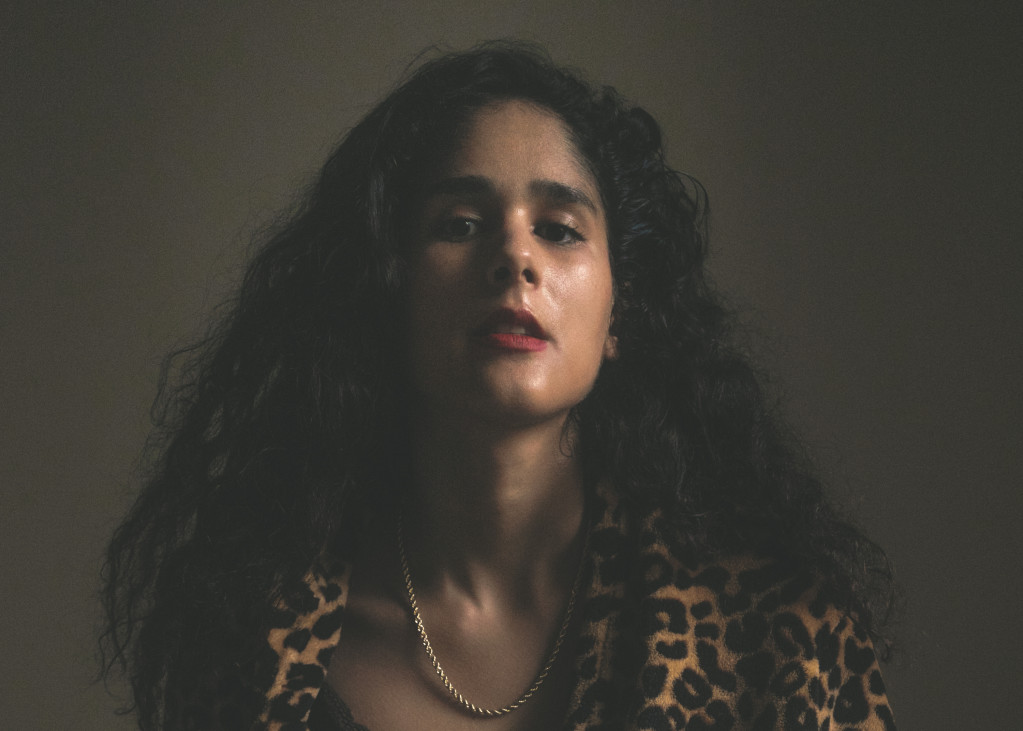
CTM and Morphine Records host a rich selection of friends – even including the likes of legendary artist Terry Riley, Indonesia’s epic Senyawa, Morphine’s own Rabih Beaini and Bill Kouligas, and Zoë Mc Pherson who played on a program I curated earlier this month (more on her soon):
Marta De Pascalis
Contagious
Bird Painting Scum
Drew McDowall
Terry Riley
Senyawa
Marylou
Rabih Beaini + Bill Kouligas
DJ DIE SOON
Zoe McPherson
Mazen Krebaj + Raed Yassin
+ TBC
From Unsound festival, some up-and-coming Polish artists to discover:
Mikolaj Trzaska + Balazs Pandi
Waclaw Zimpel
Antonina Nowacka
Beirut has multiple lineups, all hosted by The Ballroom Blitz where the sessions were recorded recently.
From IRTIJAL Festival:
Fadi Tabbal
Aya Metwalli + Calamita
Abed Kobeissy
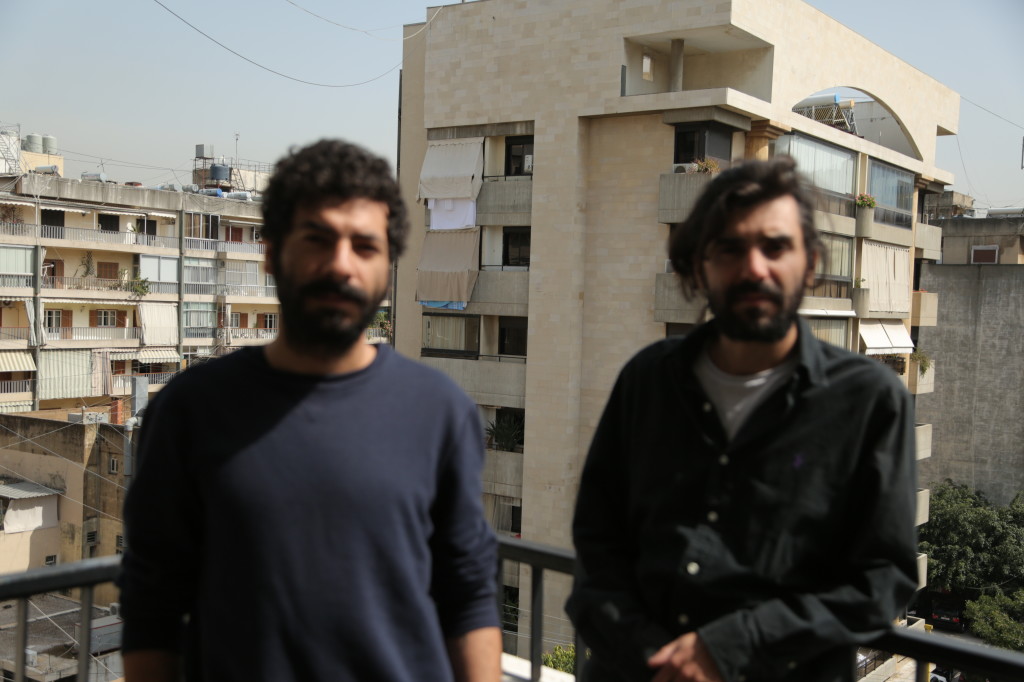
Ruptured Records:
Ziad Nawfal
Jawad Nawfal
Kid Fourteen
May Berde
Ballroom Blitz has their own lineup:
Jad Atoui
Ziad Moukarzel
Sary Moussa
Bakisa
Bel Loge + Shway Shway
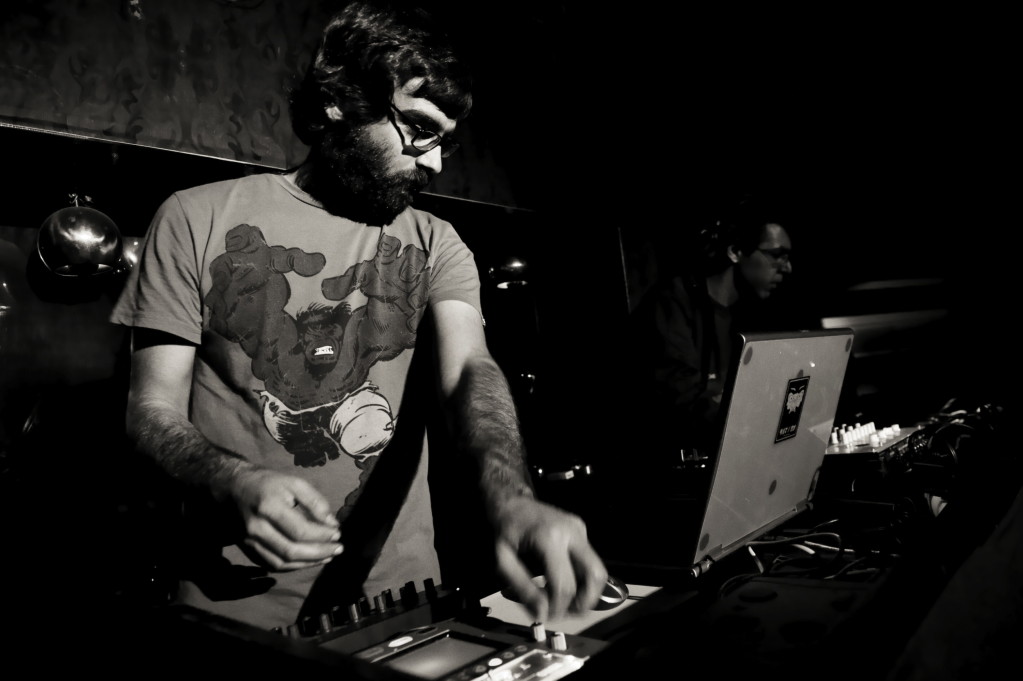
Frequent Defect music collective:
Nâr + Akram Hajj
H.W.G.A
Renata
June As
Try Harder
More:
Morphine X Beirut [CTM Festival]
http://www.morphinerecords.com/marathon/